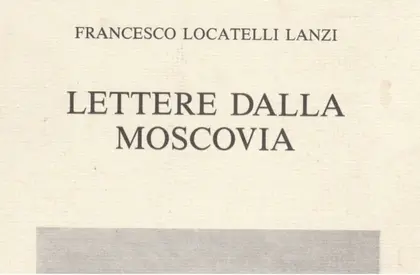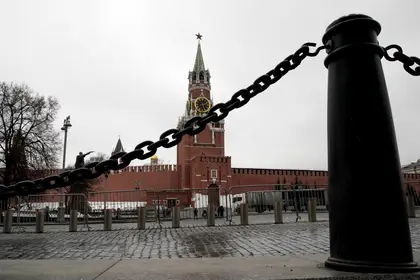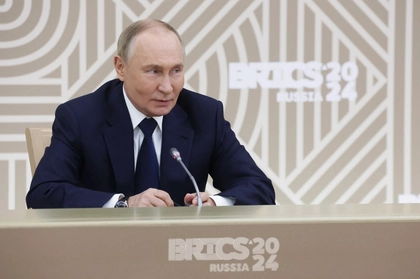Let me start with a few quotes from “Letters from Muscovy,” a little-known book by a little-known author, which appeared on the European book market back in 1735 and was translated into many languages (Russian was not among them).
“I noticed a certain difference between the peoples inhabiting this large empire. Residents of Moscow and fifty miles around… hardly deserve to be regarded as humans. But as you travel further from this area, you find people not so rude and kinder, and so more deserving to enjoy life than the people of Moscow…”
JOIN US ON TELEGRAM
Follow our coverage of the war on the @Kyivpost_official.
“There is nothing easier than finding out secrets in the local cabinet (government structures – Author’s note)… There is not a single clerk that you could not use. Just give him a glass of vodka or a half-ruble coin. Guard soldiers seldom perform their duties as they are due: you will almost always find them asleep… Those animals are always drunken, because of which there are constant skirmishes and fights.
“Such is the custom of this country: everything is left undone today and put off until tomorrow.
“It is common knowledge that theft is a common feature of the Muscovite people, so no one is even ashamed of it. Old and young, men and women shamelessly acquire the belongings of others whenever they are within reach. That is why all people here are so distrustful of one another. Peter the Great said that if he were to hang all thieves in his country, he would be left without subjects.

Up to 12,000 North Korean Troops Transferred to Russia, Satellite Images Show
Some would tell me that everything may change, including Muscovy’s appearance and inhabitants, for one cannot but learn from stepping on the same rake. But that is all a fallacy. The Muscovites may take too long to change and, to be honest, I even believe that it is absolutely impossible.”
This was written by Francesco Locatelli who is called the Italian father of Russophobia. He was born in Bergamo in 1687. At 17 he left his home city, eloping with his mother’s jewelry, as he confessed later. He settled in Paris where he did military service. He fought in wars and even rose to the rank of colonel. Then suddenly, for some reason he abandoned everything and went to Russia. On the way he obtained a forged passport and arrived in St. Petersburg in 1733 as a Michele Rocaforte.
In St. Petersburg, Locatelli/Rocaforte joined the local circle of numerous foreigners who did business or were in military service. Later, he joined an academic expedition to Kamchatka. When he and other members of the expedition were in Kazan, he was arrested, accused of espionage, and transferred to Moscow. In December, 1733, he was transferred to St. Petersburg. There, he was imprisoned in the Senate building. From the window of his cell Locatelli watched everyday drills in the training ground of the Cadet Corps, the main Russian military school in those days. The Italian had more than enough time to observe and study the ways and habits of Russian officials and military.
Mykhailo Talalai, a historian, translator and Locatelli’s biographer, commented, “My personal impression is that he was hardly recruited by the French before he arrived in Russia, but he arrived with a spying intent and possibly planned to sell intelligence. However, there was no potential buyer. The investigating commission arrived at almost the same conclusion.”
In 1734, Locatelli was expelled from the Russian Empire. At first, he lived in the Netherlands where he worked on the pamphlet that later raised a big European scandal. It was printed anonymously in France in 1735 (though the publication was for some reason dated 1736) under the title “Lettres Mosсovites.”
The insulted, indignant and enraged Russians rushed to identify the author and soon knew the name: Francesco Locatelli. The Russian envoy to the Netherlands, Alexander Golovkin, sent the report to St. Petersburg. The Dutch government was pressured to extradite the Italian to Russia, so he fled to England where he worked on the English edition of his “Letters,” which also made a great success.
There is a very interesting fact in Locatelli’s biography: he tried to ally with Ukrainian political refugees. In particular, he kept up correspondence with Pylyp Orlyk, the exiled successor to Hetman Ivan Mazepa. At the time, Orlyk lived in Stockholm.
In 1738, Russia launched what we would call today a “PR action” with the publication of a book in German. The title was rather long: “The So-called Muscovite Letters, or Slander and a Thousand Adventurous Slanders of the Glorious Russian Nation by an Alien Italian.” Locatelli’s book had about 100 pages while Russia’s book with a German translation and comments had 700. The comments on 600 pages were supposed to refute Locatelli’s “allegations.”
There is a very clear reason why Locatelli’s “Letters from Muscovy” has not been translated into Russian: it boils down to the idea that Russians are a barbaric, unenlightened, savage nation with erratic customs, and that Europe must keep Muscovy within its pre-Peter boundaries and never let it expand.
Russia’s ambassador to London Antioch Kantemir (a well-known poet, by the way) proposed to liquidate Locatelli (the way Russia more recently targeted Litvinenko and Skripal), but the long hand of Russia proved too short in his case. He passed away in his native Bergamo in 1770, having also worked for the Turkish Sultan Mahmud I and the Venetian Republic.
You can also highlight the text and press Ctrl + Enter






